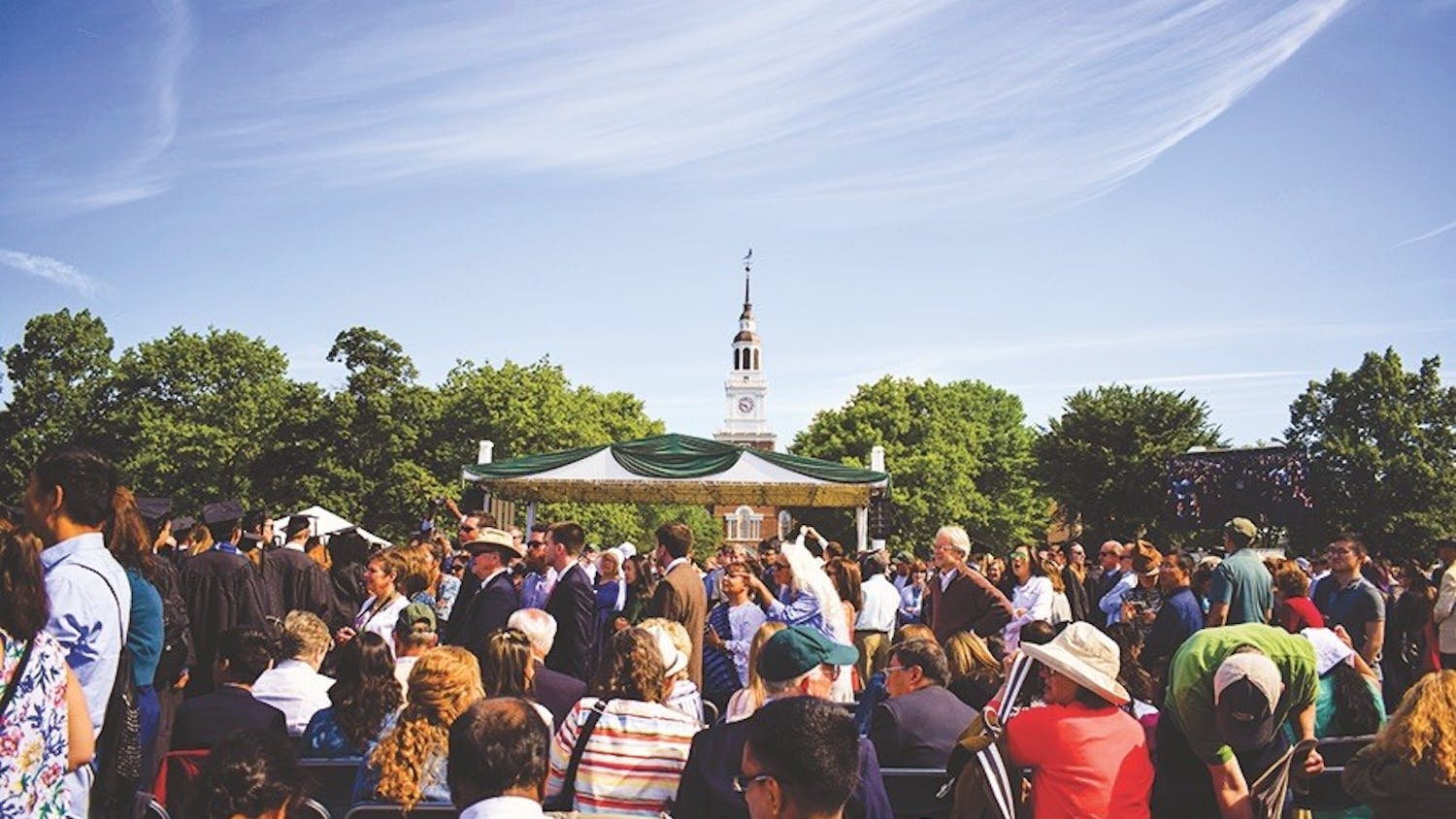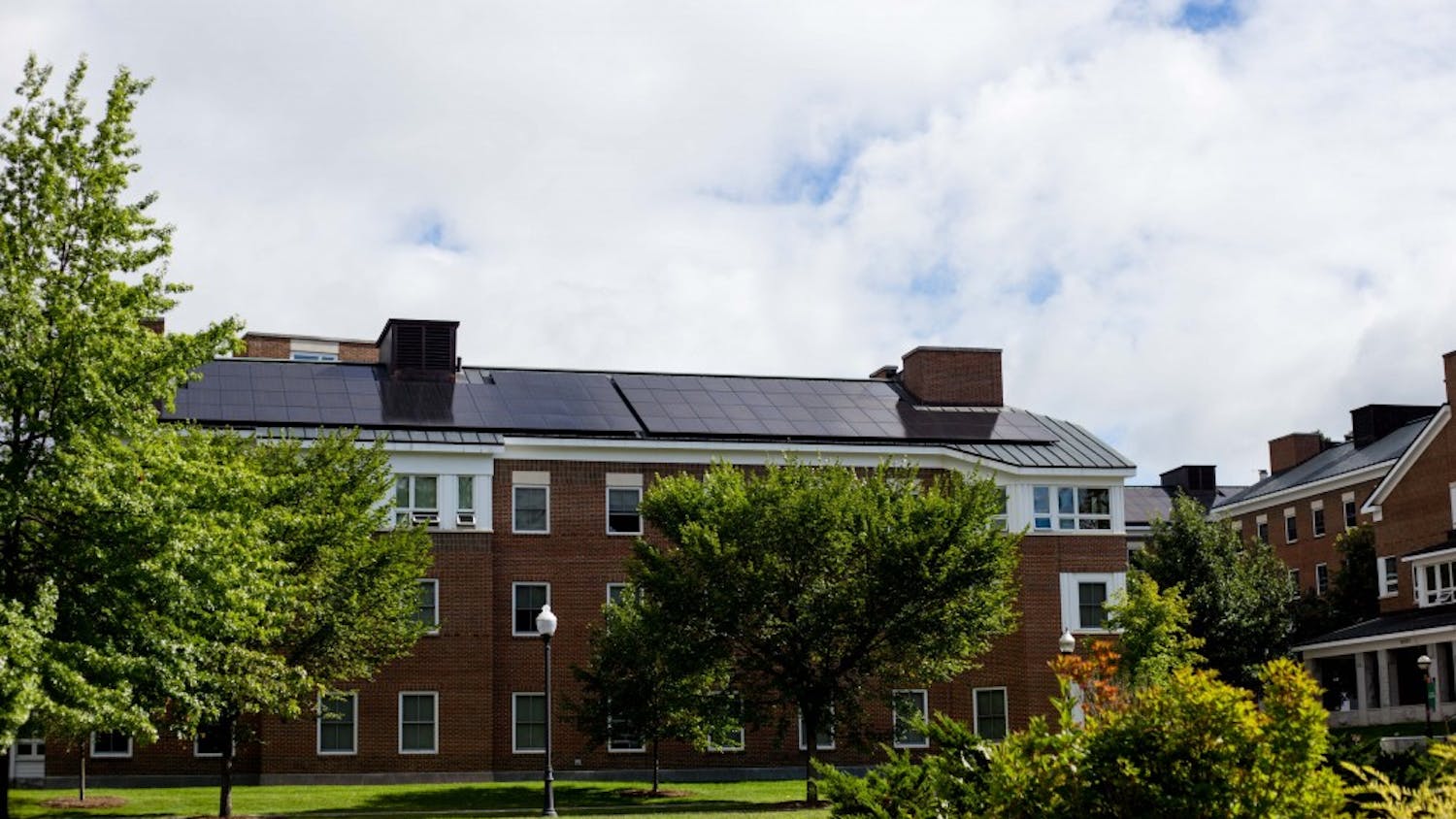Most of my favorite evenings have ended the same way, talking to friends. These days, that’s sitting in the kitchen at the Sustainable Living Center, where waffles are usually present. But freshman year, that was right outside of my room on the first floor of Berry Hall in the McLaughlin cluster. A few of my newest college friends and I, sitting on the carpeted floor, backs up against the wall.
Other groups of freshmen would move in and out of the building, stepping over our legs, sometimes laughing loudly or wearing flair, but we stayed there, fixed to the ground. It was one of those evenings when our undergraduate advisor commented that it seemed that everyone seemed to fall into one of two social groups at Dartmouth: the outdoors or Greek life. I felt a quiet, nervous wave. Neither of those communities immediately appealed to me, but surely, I would eventually find a way to fit into one of those two spaces, right?
It’s true that Dartmouth has two main social systems: the Dartmouth Outing Club and the Greek houses. I found my place late after an accidental discovery of a love for rock climbing, but I’m lucky — it takes a certain amount of privilege to navigate either group. Until my senior year I felt like an outsider from these two parts of student life as a newcomer to climbing and DOC meetings and a former member of a sorority.
Someone said to me recently that there are two ways students bond here: climbing mountains or drinking beer. As an incoming student, this would have sounded like exactly what I wanted out of college: a work-hard play-hard attitude paired with an appreciation for the environment that surrounded us. Now, I think about when I felt I didn’t fit into either category and the parts of the student population that have been left out.
I started my last year here as a volunteer trip leader for the Dartmouth Outing Club’s First-Year Trips program. Our last day was at the newly-renovated Moosilauke Lodge, where Trip leaders were supposed to reflect on their Dartmouth experiences™️ and how those perspectives could guide a dozen-something freshmen through their transitions to college.
Frankly, my transition to Dartmouth had been easy, largely smoothed by the privilege of attending a boarding school. Moving into my freshman floor, there were many aspects of college that were familiar. Club meetings in a dining hall. Emailing teachers for clarifications on assignments. Calling my parents every other week. Check, check, check. The only thing that seemed to be new was that I could pull all-nighters without crying and that I now had the confidence to openly discuss my grades. I left high school not quite in one piece, and freshman year, I felt assured in my pre-health classes and friends.
I started to feel like an outsider my sophomore year, beginning with inter-sorority recruitment, where I was hit with Dartmouth’s penchant for intro questions — everything from the personal to the straight-up weird — asked on the floors of various sororities with various sisters rapid fire. Why did you choose Dartmouth? What was your favorite class? If you were a vegetable, what kind of fruit would you want to be? I never knew there were so many ways to have the same conversations with so many different people.
When I dropped rush, I had a panic attack in the second-floor bathroom of Robinson Hall, a few feet from where I worked at the newspaper. Oh, did the Stall-Street Journal have advice for me. I must have sat on that toilet with my pants and backpack on for at least an hour. During rush, I had stressed over wearing makeup, the choice between a dress and a sweater, my words and the hundreds of subconscious signals each tiny decision could send. For the first time, I worried that talking about academics would make me look like an Asian stereotype.
Between my rush experience and watching my guy friends get bids and eventually reorient their social lives to fraternities, I felt like I lived in a different campus inlaid with gender, racial and class inequities. For the most part, women and men didn’t share the same house traditions or inhabit the same spaces, aside from scheduled functions. The lack of minority students on a given day or in the photos on the walls of different houses bothered me.
When I received a “snap bid” from Sigma Delta sorority out of the blue, I was determined to try and make the space work for me. If I simply attended enough events, made enough conversation with sisters, I would find community and empowerment, I thought. But by the end of my sophomore year, I was inactive and two years later, I submitted the paperwork to formally withdraw. I believe there is a value in single-gender spaces and a connection of living with people in a house, but I have a hard time believing those positive experiences can only come in the form of the Dartmouth Greek system.
Just as large and visible, the Dartmouth Outing Club is incredibly well supported both financially and by a whole office of full-time employees who manage facilities and vehicle reservations. Yet, I have often noticed when I am one of a few or the only person of color on a climbing trip or in a club meeting. When I was a freshman, I noticed it the moment I walked into a room, unsure in my outdoors background and afraid to stand out. Now as someone comfortable in my place, I only take note of the diversity a little while in. I don’t believe that students of color are simply not interested in the outdoors. It’s just difficult to join a space when you feel different from everyone else.
I’m grateful for the Dartmouth where I’ve been able to rediscover my love of learning and work — unhindered by my high school anxiety and insecurity — and tackle the physical and technical challenges of climbing. Dartmouth is where I decided to take the terrifying leap into reporting and journalism and had friends who guided and supported me. I’ve had adversity here — sometimes I conquered it in various levels of success. But Dartmouth is also where I learned how to advocate for myself and the issues of a social system segregated along racial, gender and class lines.
Earlier this week, I hiked Franconia Ridge with two friends. I expected a thorough sufferfest but step by slow step, we reached Mount Lincoln and saw the ridgeline stretched before us — the landscape folded and creased. It was a Monday and we shared the trail with only ourselves. It’s the kind of emptiness I will miss when work during the weekdays will keep me from the outdoors. Years from now, these mountains will still be here — largely unchanged on a geological scale. Hopefully, Dartmouth can be different.
Amanda Zhou ’19 is the former news executive editor of The Dartmouth.
Amanda Zhou is a junior at Dartmouth College originally from Brookline, Massachusetts. She’s previously been the associate managing editor, health and wellness beat writer at the Dartmouth and interned at the Pittsburgh Post-Gazette this Fall. She is pursuing a major in quantitative social science and a minor in public policy. At college, she edits the campus newspaper, serves on the campus EMS squad and lives in the sustainable living center. After graduation, she is interested in a career in journalism or data analysis. In her spare time, she can be found running, cooking or trying to rock climb.



